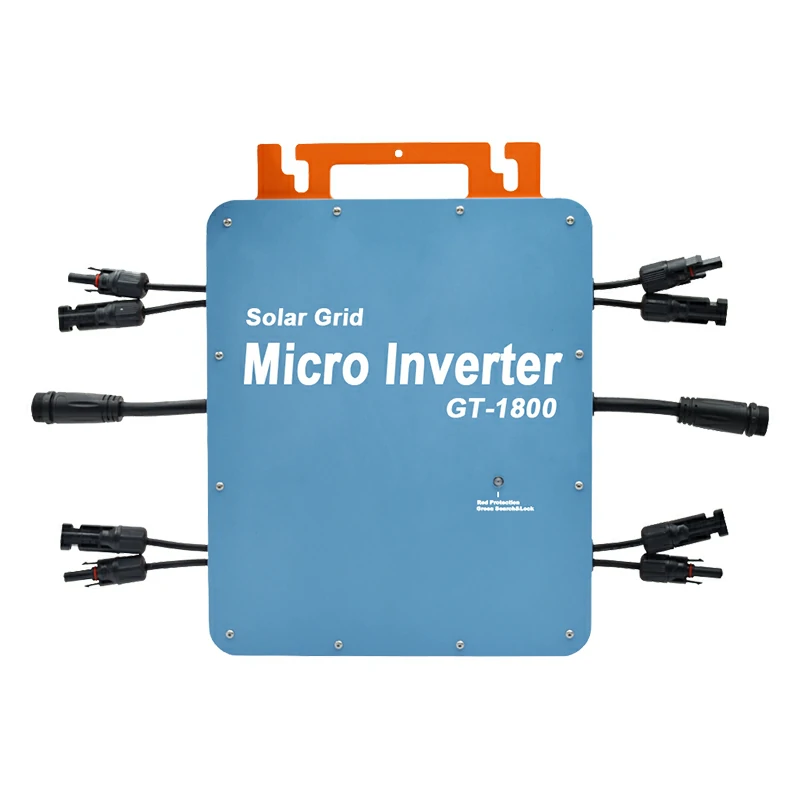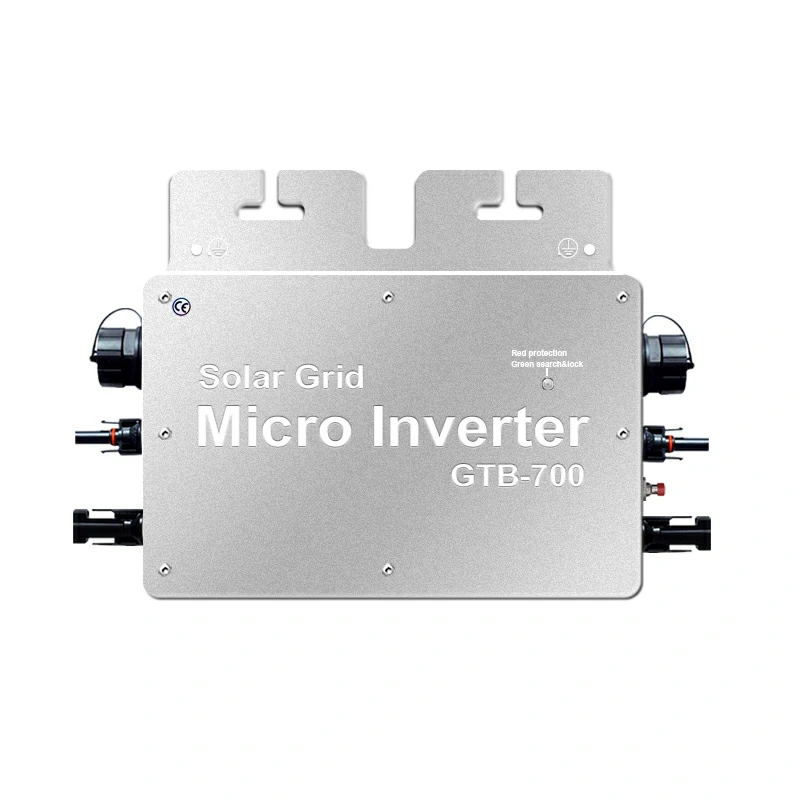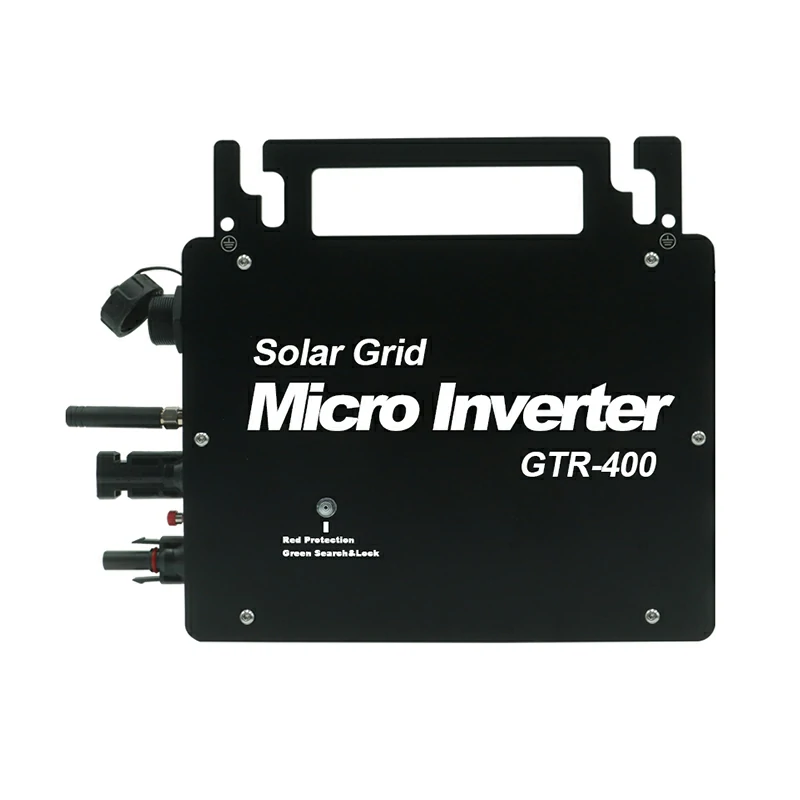Introduction to Microinverters
In the realm of solar energy systems, microinverters play a crucial role in converting the direct current (DC) generated by solar panels into usable alternating current (AC) for homes and businesses. Unlike traditional string inverters, microinverters are installed on each individual solar panel, offering several advantages in terms of efficiency, monitoring, and system flexibility.

Understanding Your Solar System Needs
Before diving into the selection process for a microinverter, it’s essential to assess your specific energy needs and system requirements. This involves calculating your average daily kWh consumption, understanding peak power demands, and evaluating any shading issues that could affect solar panel performance. These factors will directly influence the type and capacity of microinverter needed for your installation.
Compatibility with Solar Panels
Choosing a microinverter that is compatible with your existing or planned solar panel setup is crucial for optimizing system performance. Different microinverters may be tailored to specific solar panel brands or models, ensuring seamless integration and maximum efficiency. Mismatched inverters can lead to reduced overall system efficiency and potential operational issues over time.
Reliability and Warranty
When selecting a microinverter, reliability is paramount. Evaluate the reputation and track record of the microinverter manufacturer. Established manufacturers with a history of producing reliable products are often a safer bet. Look for microinverters that are designed to withstand varying environmental conditions such as temperature fluctuations and humidity.
Additionally, consider the warranty offered by the manufacturer. A robust warranty indicates confidence in the product’s longevity and performance. Typical warranties for microinverters can range from 10 to 25 years, covering defects in materials and workmanship. Ensure you understand the warranty terms, including what is covered and any conditions that may void the warranty.
Monitoring and Data Analysis
Modern microinverters often come equipped with monitoring capabilities that provide real-time data on energy production and system performance. This data is invaluable for identifying potential issues, optimizing energy output, and ensuring the overall health of your solar energy system. Look for microinverters that offer user-friendly interfaces, mobile app integration, or web-based platforms for convenient remote monitoring and data analysis.
Installation Considerations
Ease of installation is another crucial factor to consider when choosing a microinverter. Some models are designed for plug-and-play installation, making them suitable for DIY enthusiasts, while others may require professional installation by certified technicians. Ensure that the microinverter you choose aligns with your installation preferences and capabilities. Hiring a certified installer can also help ensure that the installation is done correctly and in compliance with local regulations.
Cost and Return on Investment
Cost is an important consideration when selecting a microinverter. While upfront prices vary, it’s essential to weigh the initial investment against long-term savings and return on investment (ROI). High-quality microinverters typically offer higher efficiency and reliability, potentially leading to greater energy savings over the lifespan of the system. Consider any available incentives, rebates, or financing options that may help offset initial costs and improve ROI.
In summary, choosing the right microinverter involves evaluating your specific solar system needs, ensuring compatibility with your solar panels, prioritizing reliability and warranty coverage, leveraging monitoring capabilities for optimal performance, considering installation requirements, and assessing cost-effectiveness and ROI. By following these tips, you can make an informed decision that maximizes the efficiency and longevity of your grid-connected solar energy system.
Choosing a Reputable Micro Inverter Manufacturer
Selecting a microinverter from a reputable manufacturer is essential for ensuring the long-term performance and reliability of your solar energy system. Here are key considerations when evaluating microinverter manufacturers:
Manufacturer Reputation and Experience
Research the reputation and experience of the microinverter manufacturer. Established companies with a proven track record in the solar industry are more likely to produce reliable products. Check customer reviews, industry certifications, and any awards or recognitions received by the manufacturer.
Product Quality and Innovation
Assess the quality of the microinverters offered by the manufacturer. Look for products that use high-grade materials and incorporate innovative technologies to enhance performance and efficiency. Manufacturers investing in research and development often introduce new features that improve reliability and monitoring capabilities.
Customer Support and Service
Consider the level of customer support and service provided by the manufacturer. A responsive customer support team can assist with installation queries, troubleshooting issues, and warranty claims. Look for manufacturers that offer comprehensive support resources, such as technical documentation, training programs, and online support portals.
Warranty Coverage
Evaluate the warranty coverage offered by the manufacturer for their microinverters. A robust warranty demonstrates confidence in the product’s durability and performance. Pay attention to warranty terms, including coverage duration, what is included (e.g., parts, labor), and any conditions or exclusions that may apply.
Sustainability and Corporate Responsibility
Increasingly, consumers are prioritizing sustainability and corporate responsibility when choosing products. Research the manufacturer’s commitment to sustainability practices, such as environmentally friendly manufacturing processes, energy-efficient designs, and ethical business practices.
By carefully evaluating these factors, you can choose a microinverter from a reputable manufacturer that aligns with your performance expectations, support needs, and sustainability values.




